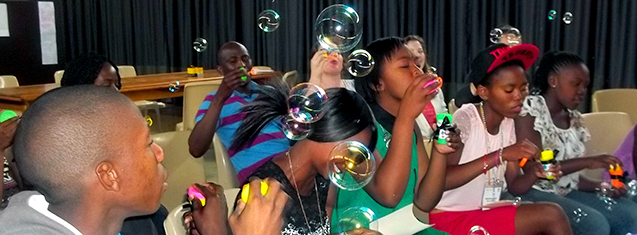Latest News Archive
Please select Category, Year, and then Month to display items
23 April 2020
|
Story Cornelius Hagenmeier
|
Photo Pixabay

The iKudu project, which is an European Union-funded Capacity Building in Higher Education (CBHE) project, has recently launched its blog, which aims to amplify the diverse voices of all iKudu stakeholders. In this space, members of the iKudu team will regularly share their views on the project and related international education topics.
The iKudu project focuses on developing a contextualised South African concept of Internationalisation of the Curriculum (IoC), which integrates Cooperative Online International Learning (COIL) virtual exchanges. The project was launched by the UFS in 2019, together with nine European and South African partner universities. It is funded by the European Union’s Erasmus+ programme with EUR999 881 (approximately R20 million) and is implemented over a three-year period.
The iKudu project is based on the fundamental belief that it is necessary to rethink internationalisation in an uncertain world. First, it is crucial to recognise and transform the power dynamics underlying international academic collaboration. Second, it is essential to develop pedagogies that allow every student to participate in international education, integrating technology where appropriate.
However, while all stakeholders agree on the fundamental tenets of the project and its principal goals, all iKudu stakeholders contribute different perspectives. In the blog, the iKudu stakeholders will provide a space for intellectual discourse on the project and related international education topics, which will allow constructive and critical engagement.
The link to the blog can be found at: https://www.ufs.ac.za/ikudu/ikudu-blogs/Transforming-Curricula-through-Internationalisation-and-Virtual-Exchanges
Digital Storytelling empowers and liberates students
2014-10-17

In January 2014, Jode Brexa, an American Fulbright scholar, came to our university and moved into the guest room at Welwitschia residence.
It so happened that Brexa and Elize Rall, residence head of Welwitschia – better known as Wel-Wel – started talking about digital storytelling. Brexa’s Digital Storytelling project captured Rall’s imagination. Shortly thereafter, Brexa convinced the RC members of Wel-Wel to participate in the project.
Digital storytelling is, on the most basic level, the use of computer-based resources to tell stories. The idea is to combine the art of storytelling with multimedia – including graphics, photos, text, audio, image and/or music.
The Wel-Wel students were taught storytelling skills and each student’s unique story was recorded and edited. It was so successful that they then showed their stories to the Rector and Dean of Students. Brexa will now – with their permission – take their stories to America with her, where she will share it with her community.
During the weekend of 10–12 October 2014, the RC of Wel-Wel introduced 12 learners, who are currently in Grade 10 at the Christiaan Liphoko School, to the project. The learners stayed in the gazellie for the weekend and, in the course of a few days, learned how much power is locked up in their personal stories. They learned that everyone’s story has the power to inspire and empower.
Wel-Wel has been involved in various outreach projects to the community. However, this was the first time that Wel-Wel literally brought the community to their doorstep. This is also not a charitable project. It is uplifted students reaching out to the youth to empower them in order to empower others in turn.
Meanwhile, Brexa also linked the project to the university’s Schools Partnership Project. The programme works through mentorship programmes to uplift previously disadvantaged schools. Hands were also taken with Columba Leadership NGO – financed by Old Mutual.